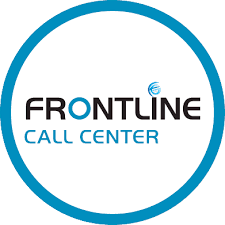Unveiling the Optimal Accounting Method for Your Business’s Prosperity
Tracy Niemier, EA
Understanding and implementing the proper accounting method is a cornerstone for financial clarity and operational success. As a business owner, choosing between cash-basis and accrual accounting methods affects how you report financial transactions. This article delves into the essence of these accounting methods, their significance, and how to discern which is most conducive to your business’s growth and fiscal management.
The Essence of Accounting Methods
Accounting methods are the backbone of financial record-keeping, providing a structured approach to tracking financial transactions and maintaining accurate financial records. The primary objective is to depict an organization’s financial performance and position. Understanding the nuances of each accounting method helps business owners make informed decisions, manage tax obligations effectively, and forecast future growth with precision.
Cash-Basis Accounting: Simplicity and Immediate Financial Insight
Cash-basis accounting, renowned for its simplicity, only records income and expenses when cash is exchanged. This method offers a straightforward perspective on cash flow, allowing small business owners to ascertain their financial standing at any given moment easily. However, its simplicity comes at the cost of a comprehensive view, as it doesn’t account for pending receivables or payables, potentially skewing the real financial health of the business. Small enterprises, particularly those without inventory or complex financial obligations, often find cash-basis accounting advantageous for its direct reflection of cash on hand and ease of management.
Accrual Accounting: A Comprehensive Financial Overview
In contrast, accrual accounting provides a more detailed financial picture by recording transactions when they are incurred, irrespective of cash movement. This method is essential for businesses that engage in credit transactions, carry inventory, or require a detailed understanding of their financial status for decision-making and strategic planning. Accrual accounting enables business owners to anticipate future revenues and expenses, offering insights into the company’s long-term financial trajectory. While it necessitates a more meticulous record-keeping process, its benefits in providing a complete financial overview are undeniable.
Choosing the Right Path: Factors to Consider
The choice between cash-basis and accrual accounting hinges on several factors, including the size of your business, regulatory requirements, and strategic financial planning needs. The IRS mandates accrual accounting for businesses surpassing $26 million in gross receipts over a three-year average, underscoring its relevance for larger enterprises. Additionally, businesses aiming for growth or those engaging in complex financial activities may find accrual accounting more suitable due to its in-depth financial insights and forecasting capabilities.
For small businesses, particularly those at the threshold of significant growth or with plans to scale, starting with accrual accounting can lay a solid foundation for future financial management needs. Conversely, cash-basis accounting may suffice for businesses with simpler transactions and those seeking straightforward financial tracking.
Modified Cash-Basis Accounting: Bridging the Gap
Businesses looking for a middle ground may consider modified cash-basis accounting, which combines elements of both methods. This hybrid approach allows for recording short-term cash transactions and long-term financial activities, offering flexibility and a balanced view of a business’s financial health.
Empower Your Business with Informed Decisions
In choosing the right accounting method for your business, being well-informed cannot be overstated. Whether cash-basis or accrual accounting is better depends on your business’s specific needs, regulatory requirements, and growth aspirations. Remember, this decision is about compliance, strategic financial planning, and management. Given the complexities involved, it’s advisable to seek the guidance of a Certified Public Accountant (CPA). A CPA can offer personalized advice, ensuring your accounting method aligns with your business goals and paves the way for sustainable growth. Making this critical decision with professional insight allows you to navigate your business toward financial clarity and success.



